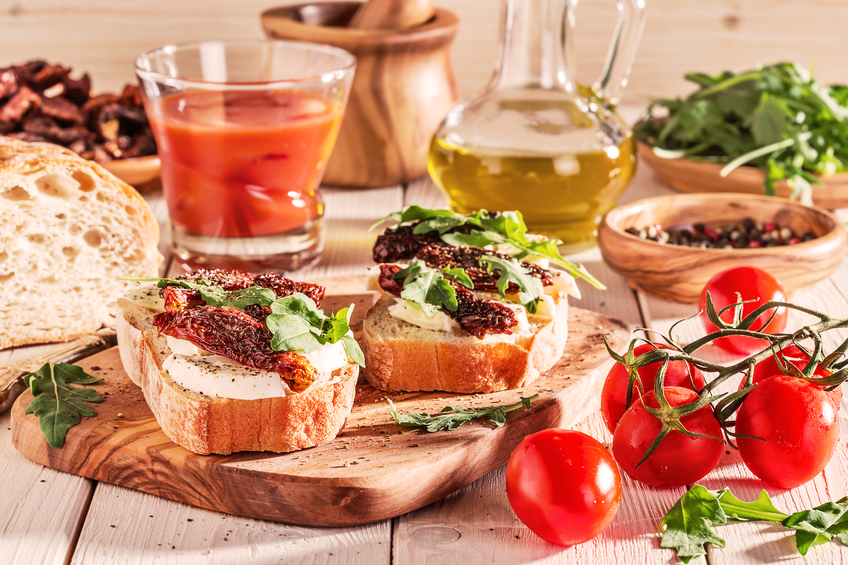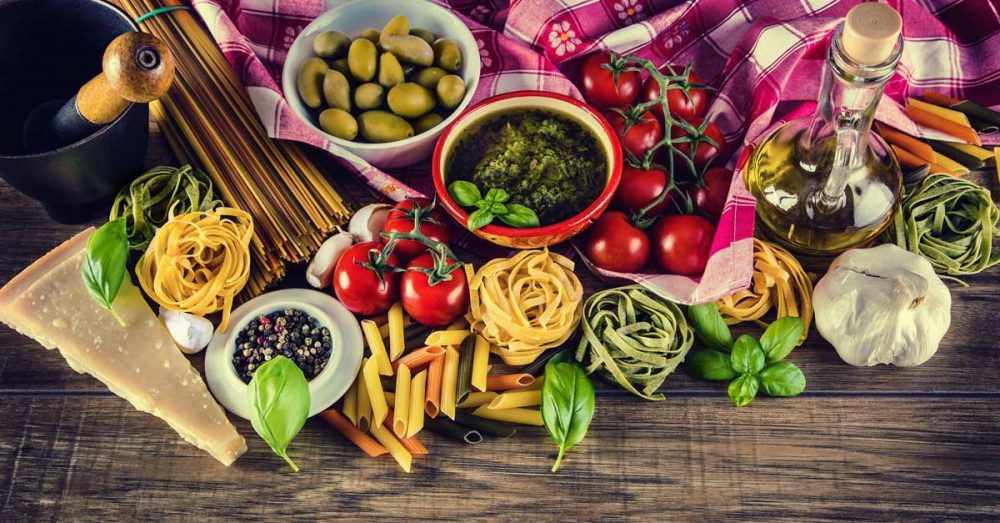A study published on (June 6) reported that men and women in a study who followed a high-fat, Mediterranean diet that was rich in either olive oil or nuts lost more weight and reduced their waist circumference more than the people in the study who were simply instructed to reduce their fat intake.

What does that mean? Are there molecules that make you fat? If you eat the same number of calories of cheesecake as you do rice cake, which will you gain more weight on? That’s like asking the second-grade stumper—which weighs more, a pound of feathers or a pound of lead? The answer is neither, because their weight is the same, and your weight gain is, too! The good food particles matter less than the number of calories of it you pack in.
Any food is fattening if overeaten, which means that no food is “fattening”: unless you make it that way. Fat free foods, then, have a lot of stoic virtues about them. They don’t really taste good so they must have some important nutritional, if not philosophical, benefits. Like medicine. Because it’s fat free, we further believe, you can eat as much as you please. What really needs to be watched is- Portion control.
There is no doubt that our body naturally needs a certain amount of fat and craves this basic macronutrient until it’s satisfied. If your foods have no fat in them, this craving never gets satisfied no matter how much lettuce or breakfast bar you eat. A fat-free diet makes your body nag you for a higher quantity of food because it never gets what it’s asking for in the first place. In fact, it’s even worse than that. Low-fat eating not only keeps your body from getting the normal fats it needs, but it actually generates cravings. By stimulating an insulin response, the sugars that sweeten these food products pull out the energy from your blood-stream, creating hunger.
Labeling fat as a dietary evil, public enemy number 1 has caused an unexpected rise in sugar consumption. Here’s why. Let’s say you are a food manufacturer, you have this elf, and you have to sell cookies. If fat’s out, you still have to make them taste good. How do you do that? Sugar. Soft drinks are perfect examples. They are low-fat drinks but have about 10 teaspoons of sugar per 12-ounce can!

Have you ever tasted a flat soda? It’s like drinking straight Karo syrup, which is normally hidden behind all that carbonation. It’s interesting that Dr. James Stubbs and his colleagues recently pointed out the experiments showing that overeating happens on supersweet diets, but especially when those sugars are in solution (like sodas). And on top of that, high-fructose corn syrup is put in hot dogs, hot dog buns, even spaghetti sauce. And these aren’t even dessert foods!
The sugar consumption has increased to 20 to 35 teaspoons per person per day! So its obviously clear that, fat itself is not the problem. Over the past 10 to 15 years, although the total fat consumption has decreased weight problems have gone through the roof. Even the fat consumption of our usual suspects, eggs, butter, and dairy products have remained constant or decreased.
We’re fat and getting fatter because of,
- Our hurried eating habits, and because of,
- The astronomical sugar content in our foods, including many of those billed as low fat.
Eating this stuff lands you up on more sugar, making you tired, making you hungry, making you eat more of that stuff, making you fatter. At this point, you’re circling the drain. You can yammer on and on about your dietary biochemical pathways all day, but if you eat faux foods loaded with high-fructose corn syrup, following by desert cookies with more of it in there, and them wash them both back with a soft drink, you’ll get fat and heart-diseased.
Fat provides 9 calories per gram, while carbohydrates and protein have 4. This simply means that fat is more satiating than protein or carbs: when one eats a high-fat food, the body tells them to stop sooner, and they don’t want as much. Fat actually increases satiety, especially the medium-chain triglycerides found in butter and coconut oil. These fats activate appetite-suppressing hormones and slow stomach emptying (so you feel fuller longer). The human body has a very sophisticated internal “calorie counter” that naturally compensates for higher energy density (more calories per gram) with a faster feeling of fullness. It’s a very elegant system and as long as you stick to real, whole foods, it works beautifully. However this is not applicable to junk food, which is specifically designed to be addictive, so it overrides that natural feeling of fullness to make you keep eating.

People should focus more on eating healthy foods, rather than worrying about dietary fats. USDA admits that some amount of saturated fat is necessary to life. Saturated fat helps to form cell membranes all over your body, it’s necessary for good immune function, it’s a basic building block for hormones, and it provides energy (calories are a nutrient, too – they’re necessary to life just like magnesium or Vitamin C!).
Reference:
For Members:
Disclaimer
The Content is not intended to be a substitute for professional medical advice, diagnosis, or treatment. Always seek the advice of your physician or other qualified health provider with any questions you may have regarding a medical condition.



